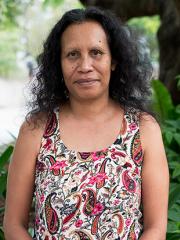Lee Sheppard

Project Title:
Description
In Australia, successive Federal Governments have had Indigenous policy as priority areas (e.g., ‘Closing the Gap’, ‘Indigenous Advancement Strategy’). Two areas that are regularly raised in Indigenous policy and practice are the potential role of the private sector (often extractives companies) and the utility of sport. Sport is said to have the unique capacity to draw in and influence hard-to-reach groups and individuals from around the globe regardless of age, background, gender, race, religion or status. While the empirical evidence remains equivocal, many programmes have been established by non-government organisations (NGOs) (including those funded by extractives companies) that aim to impact the lives of Indigenous youth through the use of sport.
My proposed research’s key objective is to examine the nature of Sport for Development (SfD) interventions through corporate-extractive industry-NGO partnerships ― particularly how these partnerships impact the NGO, extractive industry, NGO and school staff, young Aboriginal people and their communities (Hayhurst, Giles & Wright, 2016).
The three key research questions are:
- Upon what discourses do stakeholders (Aboriginal community members, students, Aboriginal mentors, school staff, extractive and NGO representatives) draw to explain/justify their involvement in such partnerships (e.g., in particular, do they draw on discourses pertaining to sustainability, community engagement, development/ education, autonomy, self-determination and empowerment)?
- How do these discourses differ between the various stakeholders?
- To what extent are grassroots/community ‘voices’ legitimised when evaluating programs or developing SfD policy? (Nicholls et al, 2011.)
Informed by best practices in Indigenist research methodologies, I propose to make use of yarning/narrative and Dadirri. Yarning/narrative and Dadirri are methodologies and vehicles for data collection. Yarning/narrative is an Indigenous cultural form of conversational method I will use to build and establish relationships with Aboriginal participants to gather their views/stories through storytelling (Bessarab & Ng’andu, 2010; Fredericks et al., 2011). Dadirri is a quality that Miriam Rose Ungunmerr-Baumann (an artist and distinguished educator from the Ngangikurungkurr language group, Daly River, Northern Territory, Australia) described as an inner, deep listening and quiet, still awareness that emphasises deep and respectful listening – contemplation/reflection (West et al., 2012; Ungunmerr-Baumann n.d.). These methodologies were chosen as my research will consider the construction, bounding and representation of my case study sites that determine my decisions and practices and those of Aboriginal participants to generate, analyse and re-present data by involving the community throughout every aspect of my research (Miles, 2015).
This research is about interacting with the community as well as respecting and enabling their viewpoint. The work is also relational and provides a platform within which participants can voice their thoughts (positive/negative) about specific SfD programmes. Rather than focusing on Aboriginal student’s weaknesses and using a ‘one size’ fits all approach, I hope my research will inform how future SfD programmes are implemented and run. By taking into consideration an individual student’s strengths and refining their individual dominant talents with knowledge and skill; so that their talents ― ie. naturally recurring patterns of thoughts, feelings, or behaviour ― can be productively applied to achieve greater opportunities for success (Clifton & Harter, 2003).
Supervision
Dr Steven Rynne and A/Prof Jon Willis
Researcher biography
I am a Djirribal woman whose country is located in Far North Queensland, Australia. I graduated from The University of Queensland in 2014 as an anthropologist (minor sociology) and undertook and completed my honours in 2015 examining ‘Cultural offsets in the mining industry: A case study from the Upper Hunter Valley, New South Wales, Australia’. I am currently undertaking my PhD at The University of Queensland examining ‘Sport for development programmes: Privatised aid and Indigenous sport in Australia’ under the supervision of Dr Steven Rynne and Associate Professor Jon Willis.
